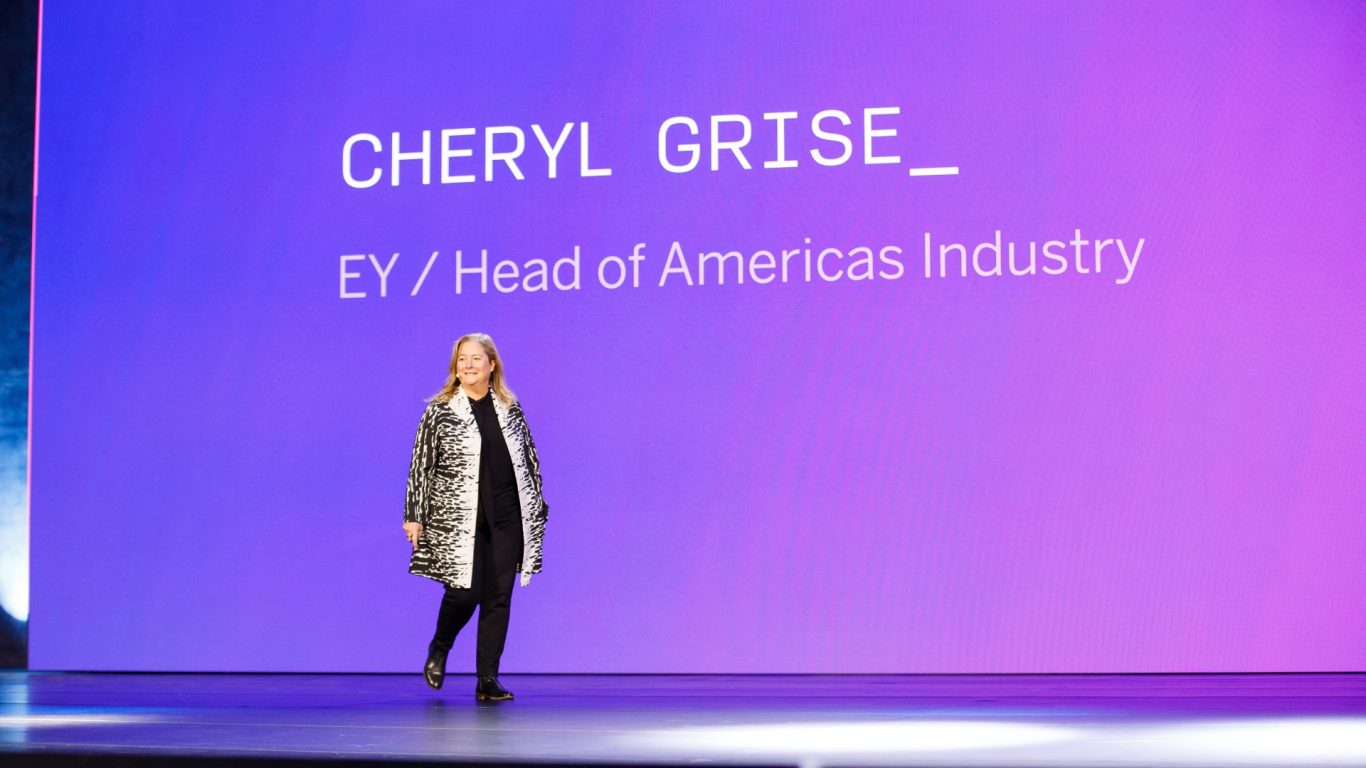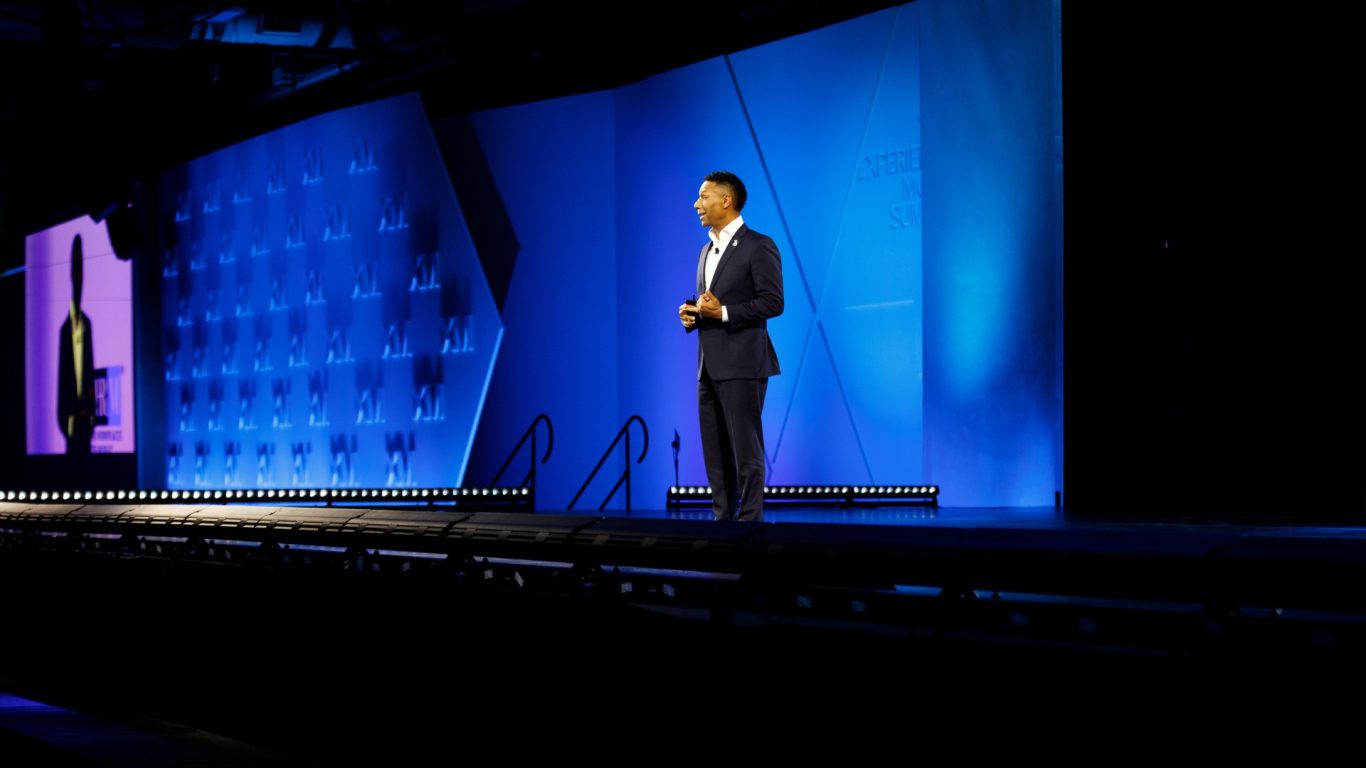Qualtrics: What does the future hold for employee experience?
Campaigners and HR experts shared their opinions at the tech company’s recent X4 summit.
Why You Should Care
Malala Yousafzai, SHRM's Johnny Taylor and Cheryl Grise from EY were among the speakers at Qualtrics' recent X4 summit.
What does the current and future of work look like?
Here's what companies must do to prepare.
HR leaders, don’t miss out: Join us in Las Vegas for free as a VIP guest at UNLEASH America.
For the first time in three years, since the COVID-19 pandemic struck, tech company Qualtrics brought its employees and customers together for X4: The Experience Management summit.
The conference was held in Salt Lake City, just 45 minutes from Qualtrics’ headquarters in Provo, with 10,000 people attending across the three day show.
Kicking off the conference was Qualtrics CMO Kylan Lundeen and CEO Zig Serafin. But they quickly passed across to the first celebrity guest of the summit: Malala Yousafzai.
Speaking on 8 March, International Women’s Day, Yousafzai shared her view that “education is the foundation of the path to equality”. Without access to education, how can girls become the female leaders of the future?
The UN’s theme for IWD 2023 is DigitALL, and focuses on the role innovation and technology to achieve gender equality at work and beyond.
But how do you overcome bias in technology? Yousafzai’s answer to ensuring that tools serve everyone is making sure you have the input of everybody when you’re designing them. “We want to see more women in technology”, women from all different backgrounds.
“Always take pause, and think about how you’re influencing and impacting the world around you”, stated Yousafzai. Not just on International Women’s Day, but every day.
EY on EX and Gen Z
When she came on stage, EY’s head of Americas industry Cheryl Grise joked how was she supposed to follow Malala! Thankfully, she was talking about a fascinating, and hugely important, topic: reimagining the future of work and how to thrive amid significant shifts and disruption.
“These shifts create transformative change in businesses” importantly, “forcing established businesses to rethink their existing models”, notes Grise.
While Grise warns businesses against falling into generational stereotypes (“stereotypes never tell the whole story”), “a generation is born from shared events and experiences that shape the societies that they grew up in”.
So, millennials and Gen Z, who will make up the majority of the workforce by 2030, are being hugely influenced by the current crisis environment and this shapes their expectations on how they want to live, work and play.
Live is our fuel and our lifestyle, play is what we do outside of work and work is our orientation; ultimately it supports our fuel and our hobbies.

Credit: Qualtrics.
So how is Gen Z thinking about live, work and play differently from previous generations, and what impact is that having on businesses, and the wider economy?
Gen Z are digital natives, but they crave learning and human connection. They are stressed about their futures and feel like the weight of the world is on their shoulders, but they are smart, pragmatic and ready to challenge the status quo.
“Trailblazers like Malala, Greta [Thunberg] have been [on] world stages to drive change, establishing the social norm in their generation around social and climate activism”, noted Grise.
There are five themes that are impacting Gen Z and how they see the world. The first is ubiquitous tech – they want tech that helps them connect and drives efficiency – while, secondly, health matters (particularly mental wellbeing).
The third is inclusivity and transparency; “they are a generation of skeptics. They want authentic and transparent interaction with other humans”.
Fourth, intentional consumerism (Gen Z are interested in sustainability and how it intersects with capitalism), and finally, this generation are financially pragmatic and want multi-economic pathways. They are a generation of savers, who want to start their own businesses and have multiple sources of income.
Ultimately, Gen Z wants balance across live, work and play. They don’t want to do what Boomers did and sacrifice play and life for work.
Gen Z “bring all of themselves to work”, but “their drive for a fulfilling life outweighs their desire for wealth”. Rather than waiting for retirement for the good life, they want balance throughout their lives – this explains phenomena like digital nomad visas, working from anywhere.
To attract Gen Z, “we will be forced to become truly digital companies” that are always changing and evolving as technology improves and innovates.
This continuous evolution is “the flip” that Gen Z will bring to business – but Grise concluded, “no matter what generation you represent, propel companies forward to do better”.
SHRM’s tips for the Great Reset
Up next on the main stage at Qualtrics X4 was Johnny Taylor, CEO at the Society for Human Resource Management (SHRM), who shared his top tips for surviving, and thriving, in the post-COVID-19 world.
In March 2020, our work and our lives changed forever, stated Taylor. Employees changed “at the DNA level” – they were questioning when and where they worked, as well as who they wanted to work for. It was a period of introspection and a time to really rethink work; in fact, SHRM is referring to it as the Great Reset.
The organization surveyed employees – or what SHRM calls ‘recruits’ because everyone is a job hunting market – to find out the real differences between 2020 and 2023 in terms of what they value.
While in 2020 there was lots of discussion around remote work – “of course, people want to work from safe places” – but that isn’t what they want long-term. Instead, they are more focused on flexibility – “generally speaking, people like other people”; they want to come into the workplace at least part of the week. Employees are not interested in sitting in their homes and that be their entire world.
‘Quiet’ trends were all the rage in the 2020s to date – “it drove me crazy”, shared Taylor.
But now “because of the slowing economy, people have come to a different spot”. They can’t afford to quit their job quietly or loudly, so there is a new concept called resenteeism – where they are “pissed” and resent being in their job, and they are making it known.
Employees have also changed their minds about perks – they don’t want a massage at work, or free food, they are now saying “show me the money”. “This is what the data is telling us”.
Similarly, workers are less interested in job security, and more interested in career development. This makes sense as there is a significant evidence that career development is a leading cause of the Great Resignation. In 2020, there were mass layoffs and furloughing going on, but now they want to be prepared for their next job.
“They expect you to help them develop their career” – they no longer “dream of being with you 30 years; you’re lucky to have them for three years”. So, they support in upgrading their skills for the future – importantly, according to Taylor, everyone wants this, not just those who would be designated by HR as ‘high-performers or potentials’.

Credit: Qualtrics.
Diversity, equity, inclusion and belonging (DEIB) really came to the fore in 2020. Forcing people to sit through diversity did not work as well as expected, noted Taylor.
Now, in 2023, employees are calling for organizations to build DEIB into their organizations; it can’t just be a tick box, and things need to move from diversity towards inclusion (and belonging).
Along a similar vein, organizations need to move from sympathy to empathy. HR cannot do this alone, all leaders need to be empathetic leaders – “this is increasingly the number one thing that employees want”.
Finally, SHRM’s research found that employees are shifting their focus from physical to mental wellness. “Employees are increasingly saying, I want to be well physically and mentally” – and organizations need to recognize the entire wellbeing of an individual in the current and future of work.
SHRM and Taylor’s final insight for the Qualtrics X4 conference was for companies to lean into alumni programs and boomerang employees. “80% regret quitting this jobs” in the pandemic and the Great Resignation. “We have got to get talent from where we can get it”, concluded Taylor.
The International Festival of HR is back! Discover amazing speakers at UNLEASH America on 26-27 April 2023.
Sign up to the UNLEASH Newsletter
Get the Editor’s picks of the week delivered straight to your inbox!

Chief Reporter
Allie is an award-winning business journalist and can be reached at alexandra@unleash.ai.
